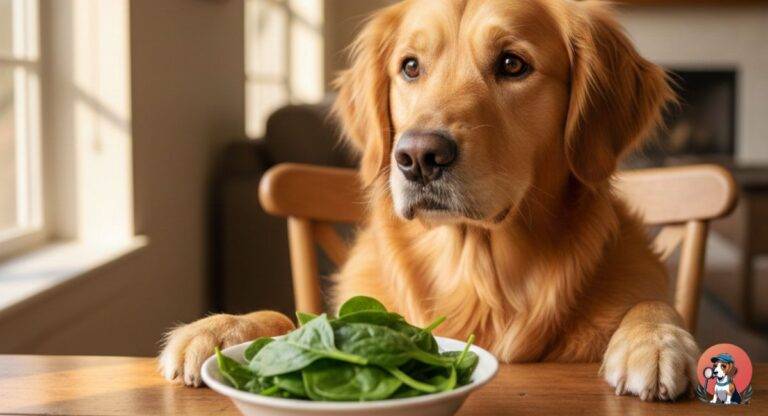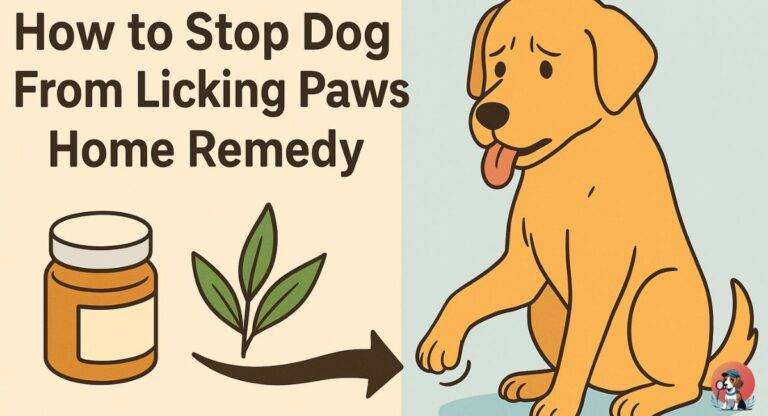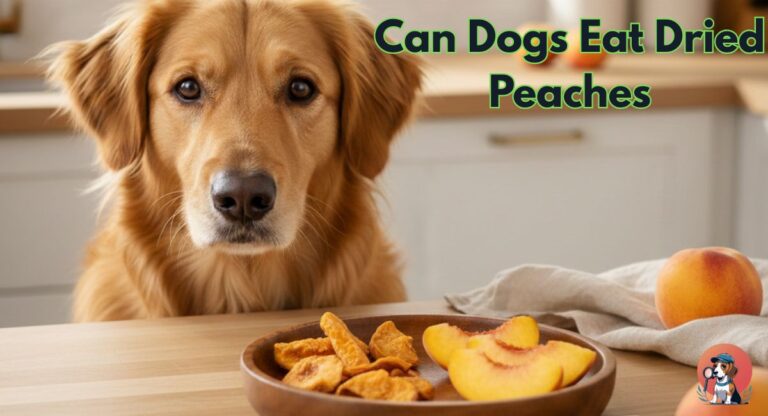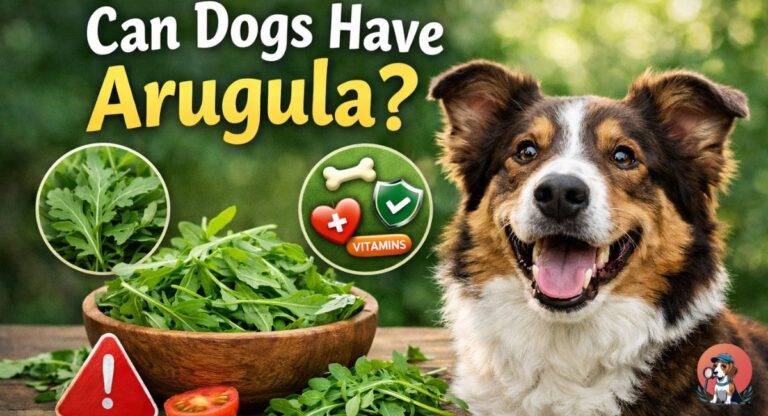What fruits and vegetables can dogs eat is a question many pet owners ask while preparing meals or snacks for their furry companions. Dogs benefit from safe produce like apples, carrots, zucchini, and celery, which add vitamins, minerals, and hydration. However, some foods like grapes, onions, and avocados can be toxic. Knowing the difference is crucial for protecting your dog’s health. In this guide, you’ll discover safe options, foods to avoid, and how to serve them correctly. With the right knowledge, you can confidently add healthy snacks that boost your dog’s energy, digestion, and overall well-being.
What fruits and vegetables can dogs eat goes beyond curiosity—it’s about keeping your dog safe while providing nutrition beyond commercial food. Fresh produce like celery, apples, blueberries, and carrots delivers antioxidants, fiber, and hydration, while avoiding harmful foods like garlic, raisins, and onions prevent serious health risks. Many dog owners also wonder about extras, such as can dogs have feta cheese or scrambled eggs for dogs. This article covers safe foods, best practices, and preparation methods, so you can treat your dog wisely. Giving the right snacks enhances their immune system, digestion, and long-term vitality.
What fruits and vegetables can dogs eat matters because every bite affects your dog’s health. While kibble is the foundation of their diet, adding safe produce such as zucchini, celery, and apples offers low-calorie fiber and vitamins A, C, and K. Some owners also ask, “can dogs eat egg shells for calcium?” or Can Dogs Have Feta Cheese? These are common concerns, and knowing the right answers prevents mistakes. With proper guidance, you’ll learn which foods refresh breath, support bone health, and keep weight balanced. The goal is to make your dog’s diet safe, nutritious, and enjoyable.
What fruits and vegetables can dogs eat is one of the most important questions for responsible pet parents. Offering the right produce supports energy, immunity, and digestion, while the wrong choices can cause illness. Safe picks like apples, carrots, and can dogs eat zucchini are excellent, while fatty cheeses or toxic foods should be avoided. Owners often seek advice on healthy treats, from a can dogs eat celery guide to safe dairy alternatives. This guide simplifies everything: safe snacks, harmful foods, and smart serving tips. By the end, you’ll feel confident in giving your dog nutritious, safe, and delicious treats.
1. Dogs can enjoy safe fruits
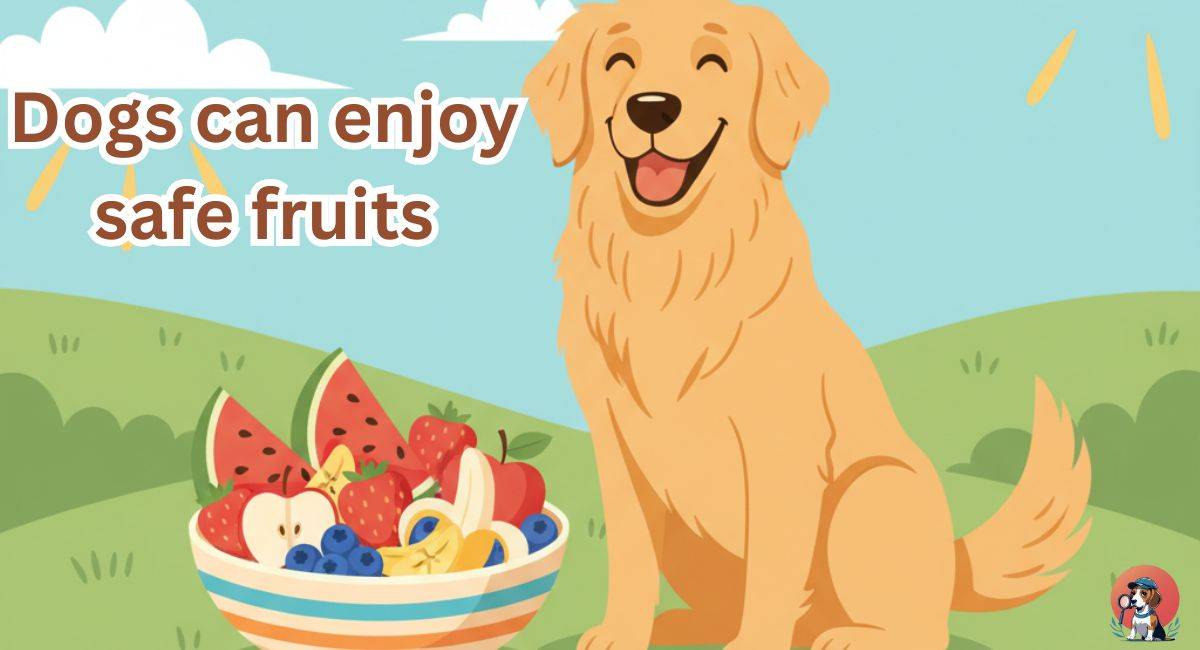 What fruits and vegetables can dogs eat, or are safe for dogs? Fruits can be a great addition to any balanced diet, as they are rich in vitamins, provide hydration, and have a natural sweetness. Not all fruits are good for dogs. Apples, bananas, and blueberries are all safe options. These fruits provide energy, digestive health, and immunity, without adding unnecessary additives. Always remove any seeds, pits, or cores from fruits before feeding them. Sugar can cause weight gain if consumed in excess. What fruits and vegetables can dogs eat? Fruits in bite-sized pieces are safe for your pet and make snacking fun.
What fruits and vegetables can dogs eat, or are safe for dogs? Fruits can be a great addition to any balanced diet, as they are rich in vitamins, provide hydration, and have a natural sweetness. Not all fruits are good for dogs. Apples, bananas, and blueberries are all safe options. These fruits provide energy, digestive health, and immunity, without adding unnecessary additives. Always remove any seeds, pits, or cores from fruits before feeding them. Sugar can cause weight gain if consumed in excess. What fruits and vegetables can dogs eat? Fruits in bite-sized pieces are safe for your pet and make snacking fun.
Dogs and Fruits
- Apples– Apples contain fiber and vitamin C and are good for digestion and immunity. Remove the seeds and cores as they can contain harmful compounds. Apple slices are a great crunchy treat to give your dog, especially on hot days. They also keep their teeth clean.
- Bananas– Bananas are rich in potassium, which is essential for a healthy heart and muscles. Bananas are also easy on the stomach. Moderation is key, as too much can add sugar. Banana slices are a healthy and natural dog treat.
- Blueberries– Blueberries contain antioxidants that protect against cellular damage in dogs and promote brain health. These low-calorie treats are perfect for daily snacks or training sessions. The texture and flavor of these small, juicy treats are loved by dogs.
- Watermelon- Watermelon is a great source of hydration for dogs, especially during hot weather. Before serving, remove the seeds and rind as they can upset digestion. The high water content makes this a refreshing and cooling snack for your dog.
- Strawberries– Strawberries contain vitamin C and fiber. Also, they contain compounds that help whiten the teeth of dogs. Fresh strawberries should be served in small quantities to prevent excessive sugar consumption.
- Pears– Pears are rich in vitamin C and fiber, which promote healthy digestion and bones. Remove the seeds and cores from pears before you feed them. Dogs will love the sweet and nutritious taste of small pear pieces.
2. Canine health benefits from vegetables
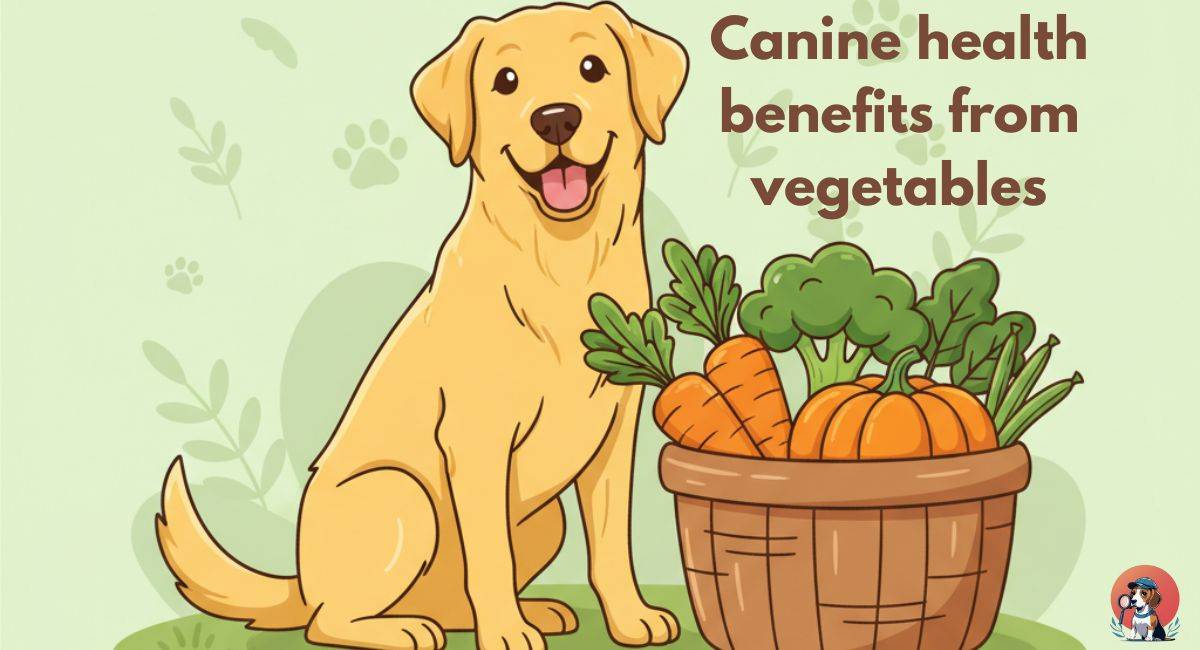 In discussing what fruits and vegetables can dogs eat, or are good for dogs, vegetables play an important role in maintaining the health and strength of dogs. Vegetables have low calories, but are packed with vitamins and minerals. Carrots, celery, and broccoli are good for dogs. These foods are good for the immune system, vision, digestion, and hydration. To aid in digestion, vegetables should be cut into small pieces or lightly steamed. Cooked vegetables are more palatable for those with sensitive stomachs. What fruits and vegetables can dogs eat? Add safe vegetables to the diet of your dog to improve its health and to add variety.
In discussing what fruits and vegetables can dogs eat, or are good for dogs, vegetables play an important role in maintaining the health and strength of dogs. Vegetables have low calories, but are packed with vitamins and minerals. Carrots, celery, and broccoli are good for dogs. These foods are good for the immune system, vision, digestion, and hydration. To aid in digestion, vegetables should be cut into small pieces or lightly steamed. Cooked vegetables are more palatable for those with sensitive stomachs. What fruits and vegetables can dogs eat? Add safe vegetables to the diet of your dog to improve its health and to add variety.
Nutritious Vegetables For Dogs
-
Carrots– Carrots contain beta-carotene, which is converted to vitamin A and helps with vision health. They are great for dogs that like to chew because their crunchy texture helps clean teeth.
-
Celery– Celery is a great way to freshen your dog’s breath and provide vitamins C and K. The water content helps keep dogs hydrated, which in turn aids with weight management. To prevent choking, cut celery into small pieces.
-
Broccoli – Broccoli is rich in vitamin C, antioxidants, and fiber. It strengthens the immune system when consumed in moderation. Small portions are recommended as too much can cause stomach upset or gas.
-
Zucchini– Zucchini is rich in potassium, vitamin C, and fiber. It is low in calories and promotes healthy digestion. It can be served to dogs either raw or steamed, depending on their preference.
-
Cucumbers– Cucumbers have a crisp texture, are almost calorie-free, and are hydrating. These are great for dogs who need a refreshing snack. They are safe because they’re in small, bite-sized pieces.
-
Green Beans– Green beans have a high fiber content and are low in calories. They support a healthy digestive system. Raw or steamed beans are both safe, but canned beans that contain added salt should be avoided.
3. Can Dogs Eat Eggs Safely?
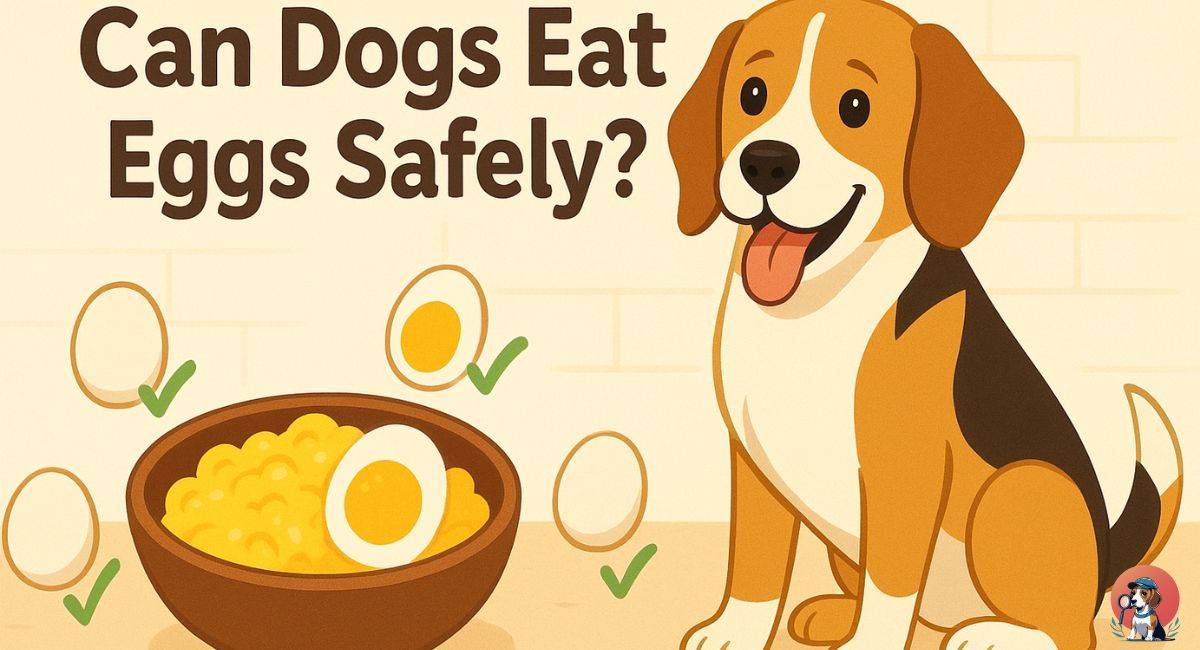 When researching what fruits and vegetables can dogs eat, and whether or not eggs are part of a healthy diet for canines, the question of eggs is often asked. The protein, biotin, and fatty acid content of eggs support skin, coat, and muscle health. In moderation, dogs can eat eggs cooked in a variety of ways, including scrambled, boiled, or without oil or seasoning. Cooking eggs is the best option because raw eggs can pose health risks, such as salmonella and biotin deficiencies. If ground into powder, eggshells also contain calcium. What fruits and vegetables can dogs eat? Eggs are a versatile and nourishing snack for dogs, but it is important to control the portion size. Can dogs have eggshells?
When researching what fruits and vegetables can dogs eat, and whether or not eggs are part of a healthy diet for canines, the question of eggs is often asked. The protein, biotin, and fatty acid content of eggs support skin, coat, and muscle health. In moderation, dogs can eat eggs cooked in a variety of ways, including scrambled, boiled, or without oil or seasoning. Cooking eggs is the best option because raw eggs can pose health risks, such as salmonella and biotin deficiencies. If ground into powder, eggshells also contain calcium. What fruits and vegetables can dogs eat? Eggs are a versatile and nourishing snack for dogs, but it is important to control the portion size. Can dogs have eggshells?
Eggs are good for dogs
-
Power Protein-Eggs contain high-quality proteins that support strong muscles, energy, and body repair. One egg can provide a significant protein boost to active and growing puppies.
-
Eggs are Rich in Biotin– Biotin helps to keep skin healthy and coat shiny. It supports a healthy metabolism and ensures that dogs are able to absorb nutrients.
-
Fatty acids– Dogs benefit from the healthy fats in eggs, which support brain function and joint health. They also have a glossy, smooth coat. These fats are more easily digestible than processed oils.
-
Calcium in Shells– Crushed eggshells are a natural source of calcium that promotes strong teeth and bones. To ensure safety, always cook and grind eggshells into powder.
-
Easy Digest– Cooked egg is gentle for most dogs and can help with minor digestive problems.
-
Versatile treat – Eggs are versatile and can be scrambled or boiled. They can also be mixed with kibble to add variety, nutrition, and flavor without adding unhealthy additives.
4. Can dogs eat apples safely?
Apples are a popular answer to What fruits and vegetables can dogs eat, because they’re nutritious, refreshing, and safe. Apples are rich in vitamins A and C, which improve the skin and eyes, as well as strengthen immunity. The fiber in apples helps digestion, while the crunchiness of their texture is good for teeth cleaning. Apples also have low calories and are great for weight loss. Owners should remove the seeds and cores as they contain cyanide. What fruits and vegetables can dogs eat? Apples are the perfect snack for all dogs, as they provide hydration, nutrition, and freshness in a small, bite-sized piece.
Apples for Dogs: Benefits
-
Vitamin C boost– Helps dogs fight seasonal infections. Apple treats regularly can help dogs stay healthier and be more resistant to illnesses.
-
Vitamin-A Support — Strengthens vision and nourishes skin and coat. Gives dogs a healthy and shiny appearance.
-
Digestive Aid– Apples contain a lot of fiber, which helps regulate digestion, prevent constipation, and keep the stomach in a natural balance.
-
Dental hygiene – Crunching apples can help remove tartar and plaque from teeth.
-
Hydration benefit– Apples are high in water and keep dogs hydrated, especially during the summer.
-
Weight-Friendly Snack Apples have low calories and are perfect for dogs that need to lose weight but still enjoy their snacking time.
5. Can dogs eat carrots daily?
When asked what fruits and vegetables can dogs eat, carrots are a staple. Carrots are known for their beta carotene. They support skin, vision, and immune health. The crunchy texture of carrots is a great natural toothbrush that helps clean teeth and provides a low-calorie treat. They can be eaten raw, lightly steamed, or cooked. Frozen carrot sticks are especially beneficial for puppies, as they soothe discomfort caused by teething while strengthening gums. Carrots can help overweight dogs reduce their appetite without adding extra calories. What fruits and vegetables can dogs eat? Regular carrot feeding can improve digestive health, eye and dental hygiene, and keep dogs active.
Carrots are good for dogs
-
Vision Health– Beta-carotene is converted into vitamin A and supports healthy vision.
-
Strong immunity– The antioxidants in carrots boost the immune system and help speed up recovery from illness.
-
Weight Management Carrots provide a lot of nutrition but are low in calories. They make a great snack for dogs who tend to gain weight.
-
Dental Health – Crunching raw carrots will help to clean teeth and massage the gums.
-
Digestive Balancing– Carrots contain fiber, which supports smooth digestion and helps to prevent constipation.
-
Puppy Toothache Relief– Frozen Carrot Sticks soothe sore gums and reduce discomfort for teething puppies.
6. Can dogs eat celery?
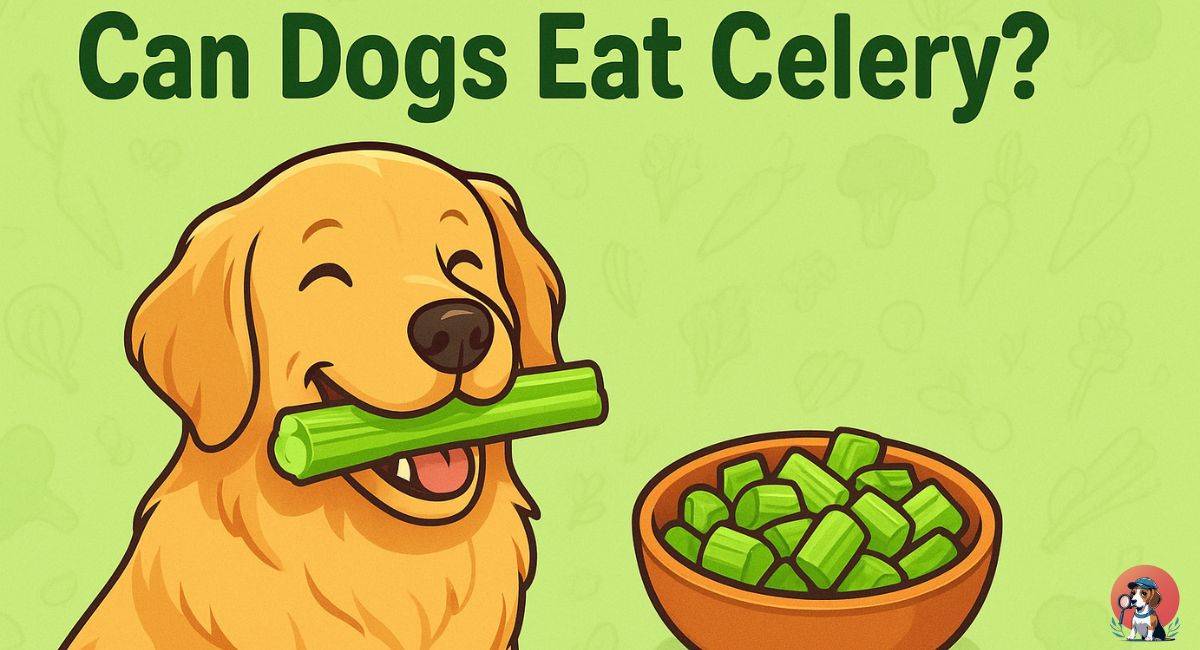 Celery is often forgotten when considering what fruits and vegetables can dogs eat or are good for dogs. However, Can dogs eat celery? it has many benefits. Celery has low calories and is packed with vitamins C and K that support skin and bone health, as well as immunity. The crunch of celery helps to clean teeth and freshen breath. Celery is high in water, which helps dogs stay hydrated and reduces their tendency to overheat on hot days. To avoid choking, it’s best if you cut celery into bite-sized pieces. Avoid overfeeding, as it can lead to excessive urination. What fruits and vegetables can dogs eat? Celery is a healthy, nutrient-rich snack that dogs of all breeds can enjoy in moderation.
Celery is often forgotten when considering what fruits and vegetables can dogs eat or are good for dogs. However, Can dogs eat celery? it has many benefits. Celery has low calories and is packed with vitamins C and K that support skin and bone health, as well as immunity. The crunch of celery helps to clean teeth and freshen breath. Celery is high in water, which helps dogs stay hydrated and reduces their tendency to overheat on hot days. To avoid choking, it’s best if you cut celery into bite-sized pieces. Avoid overfeeding, as it can lead to excessive urination. What fruits and vegetables can dogs eat? Celery is a healthy, nutrient-rich snack that dogs of all breeds can enjoy in moderation.
Celery is good for dogss
- Low Calorie Snack- Ideal for dogs on diets to control weight, as it keeps them satisfied without adding fat.
- Vitamin A- Boost supports vision and skin health. Enhances coat shine.
- Vitamin C- Strength Boosts immunity, helps prevent seasonal illnesses and infections.
- Vitamin K- Supports improved bone strength and helps to ensure proper blood clotting.
- Hydration Aid- Celery contains a high amount of water and keeps dogs cool when exercising or in hot weather.
- Dental Hygiene- Its crunchy texture scrapes off plaque to promote cleaner teeth and fresher breath.
7. Can Dogs Have Zucchini?
 Zucchini has a low ranking when it comes to what fruits and vegetables can dogs eat. It’s low-calorie, full of vitamins, and safe. Can dogs have zucchini? Yes —Zucchini is good for digestion, potassium strengthens the heart, and antioxidants improve immunity. Zucchini can be eaten by dogs raw, lightly steamed, or lightly cooked, without adding any oil or seasoning. The mild taste and crunchy texture make it a favorite for dogs. Its nutrients are good for their overall health. Moderation is key when it comes to feeding zucchini. Overfeeding can cause minor stomach upset. What fruits and vegetables can dogs eat? Zucchini is a great snack for your dog. It adds freshness and variety to their meals.
Zucchini has a low ranking when it comes to what fruits and vegetables can dogs eat. It’s low-calorie, full of vitamins, and safe. Can dogs have zucchini? Yes —Zucchini is good for digestion, potassium strengthens the heart, and antioxidants improve immunity. Zucchini can be eaten by dogs raw, lightly steamed, or lightly cooked, without adding any oil or seasoning. The mild taste and crunchy texture make it a favorite for dogs. Its nutrients are good for their overall health. Moderation is key when it comes to feeding zucchini. Overfeeding can cause minor stomach upset. What fruits and vegetables can dogs eat? Zucchini is a great snack for your dog. It adds freshness and variety to their meals.
Zucchini for Dogs: Benefits
- Low-Calorie Food- Ideal for dogs on a strict diet or overweight.
- Rich In Antioxidants- Strengthens Immunity and Protects Against Free Radical Damage.
- Fiber to Maintain Digestion- Prevents constipation and keeps digestion smooth.
- Heart Health- Potassium is essential for healthy heart function.
- Easy preparation – Can be fed without seasoning, raw, baked, or steamed.
- Crunchy fun – Adds variety to dog snacks by providing a new texture.
8. Avoiding Fruits and Vegetables for Dogs
Not all fruits and vegetables that are listed under What fruits and vegetables can dogs eat are safe. Some fruits and veggies can be dangerous and toxic. Even in small quantities, grapes and raisins can cause kidney failure. Garlic and onions can cause anemia by damaging red blood cells. Avocados are high in persin, which can cause digestive problems. The corn cobs and pits can cause choking or release toxic substances. Caffeine and chocolate are both highly toxic. These items should not be fed to dogs under any circumstances. It is important to know the safe foods and the unsafe ones. What fruits and vegetables can dogs eat? This will help protect your dog from potential health problems.
Foods dogs must avoid
- Grapes and Raisins- A few grapes and raisins can cause severe kidney failure.
- Garlic and Onions- Cause anemia and weakness.
- Avocados- Contain persin, which can cause vomiting, diarrhea, and discomfort to dogs.
- Corn Cobs -Can cause choking and block the intestines when swallowed.
- Fruit Pits/Seeds- Can release toxins that can cause dogs to choke.
- Chocolate & Caffeine Extremely toxic- Seizures, rapid heartbeat, or death can result.
9. Can dogs eat blueberries and strawberries?
When asked what fruits and vegetables can dogs eat, are safe for dogs to eat, blueberries and strawberries come out as the most nutritious and safest options. These small, sweet fruits are full of antioxidants and fiber that improve digestion and immunity. Strawberries even support dental hygiene, while blueberries protect against cellular damage and boost brain function. They are low in calories, rich in nutrients, and perfect for everyday snacks and training treats. What fruits and vegetables can dogs eat? However, you should serve them fresh, wash them, and use moderation in order to avoid sugar overload.
Strawberries, blueberries, and their health benefits for dogs
- Antioxidant- protection and Blueberries contain antioxidants that fight free radicals. They protect your dog from inflammation and cell damage. It also reduces the chance of cancer and heart disease.
- Strawberries- contain natural enzymes, which may whiten teeth. Together with their fiber content, they can help to remove plaque, freshen breath, and promote better oral hygiene.
- Low-Calorie Snack Both blueberries and strawberries have a low calorie count but are high in nutrients. These fruits are great for weight management, as they allow your dog to have a delicious snack without the risk of obesity.
- Immune Boost – The high Vitamin C content in blueberries and strawberries strengthens the immune system of your dog. Regular portions of safe food can help your dog fight infections, recover quickly, and maintain a high level of energy during stressful times or seasonal changes.
- Digestive Health– These fruits are rich in fiber and regulate bowel movements, promoting healthy digestion. This is a great way to help dogs with constipation and irregular stools. It also keeps their stomach balanced.
- Training treats– Due to their small size and sweet natural flavor, they are perfect as rewards for training. They are highly motivating for dogs, and because they contain low calories, you can give them to them over and over again during sessions of positive reinforcement.
10. Serve Fruits & Vegetables in a Safe Way
It is not enough to know what fruits and vegetables can dogs eat, but it is also important to serve them safely. Small, easy-to-digest portions are best for dogs. Wash produce thoroughly to avoid harmful seeds and pesticides. Vegetables can be made softer by lightly steaming them, particularly for puppies and senior dogs. Adding seasonings such as salt, sugar, or oil can be harmful to your dog’s well-being. Preparation is just as important as selection when it comes to feeding your dog in moderation. What fruits and vegetables can dogs eat? This will ensure they get nutrition without experiencing stomach upset or gaining weight.
How to serve fruits and vegetables to dogs
- Wash Thoroughly- Always wash fruits and vegetables thoroughly to remove dirt and chemicals. Cleaning your dog’s food will reduce the chance of toxic substances entering their system.
- Chop into small pieces – Chop snacks into manageable pieces to avoid choking hazards. Bite-sized portions are especially beneficial for small dogs and puppies, as they make their food easier to digest and chew.
- Remove the Seeds and Cores– The seeds, pits, or cores may be toxic or cause choking hazards. Remove apple seeds, pits, or cores from peaches and apples before serving. This simple step will protect your dog’s well-being.
- Steam Vegetables — Vegetables such as broccoli, zucchini, and carrots can be digested more easily by dogs when they are lightly steamed. This method softens the texture without removing nutrients. It makes veggies more appealing to dogs with sensitive stomachs.
- Avoid seasonings– Dogs thrive on plain, natural food. Salt, sugar, butter, or spices may cause digestive problems and long-term health problems. Keep your preparations simple to reap maximum benefits.
- Eat in Moderation- Too much fruit and vegetable consumption can cause diarrhea or weight gain. A few slices of fruit or vegetables, such as berries, are enough to provide health benefits.
FAQs
1. What fruits and vegetables can dogs eat safely every day?
Dogs can safely enjoy apples, bananas, blueberries, watermelon, carrots, and green beans. These foods are full of vitamins and hydration. Always remove seeds, pits, or cores to prevent choking and serve them in small pieces.
2. What fruits and vegetables can dogs eat with feta cheese?
Dogs should avoid feta cheese because it’s high in fat and sodium. If you want to mix snacks, choose plain fruits and vegetables like carrots, cucumbers, or apples instead of dairy-heavy foods.
3. What fruits and vegetables can dogs eat with celery?
Celery is safe and low-calorie, making it a crunchy snack. Along with celery, dogs can enjoy zucchini, broccoli, and cucumbers. These improve digestion, freshen breath, and provide hydration when served in small, plain slices.
4. What fruits and vegetables can dogs eat with egg shells included?
Dogs can safely eat certain fruits and vegetables along with ground egg shells for calcium. Egg shells should always be crushed into fine powder. Pairing them with apples or carrots makes a nutritious, balanced snack.
5. What fruits and vegetables can dogs eat with scrambled eggs?
Scrambled eggs (without oil, salt, or spices) can be paired with safe vegetables like zucchini, spinach, or green beans. This combination gives protein, fiber, and vitamins, keeping your dog energized and healthy.
6. What fruits and vegetables can dogs eat with zucchini in their diet?
Zucchini is safe, hydrating, and low in calories. Dogs can also eat cucumbers, carrots, apples, and pears with zucchini. Together, these snacks provide variety, support weight control, and keep digestion strong.
7. What fruits and vegetables can dogs eat while avoiding toxic foods?
Dogs should eat safe produce like apples, celery, blueberries, and zucchini while avoiding grapes, onions, garlic, avocado, and chocolate. These toxic foods can cause poisoning or kidney problems, so knowing the difference is vital.
8. What fruits and vegetables can dogs eat when served properly?
Fruits and vegetables should always be washed, peeled, and cut into bite-sized pieces. Seeds, pits, and cores must be removed. Serve them raw or lightly cooked without oil or spices for maximum health benefits.
Conclusion
By knowing what fruits and vegetables can dogs eat, owners are empowered to make healthier and smarter choices for their pets. Apples, carrots, and celery are safe options that provide vitamins essential for digestion, immunity, and dental health. To avoid life-threatening complications, it is important to always avoid harmful foods like grapes, chocolate, onions, and garlic. What fruits and vegetables can dogs eat? By striking a balance, you can ensure that your dog is healthy, happy, and safe while still enjoying nutritious treats.
The addition of healthy fruits and veggies gives your dog a variety, hydration, and nutrients that improve overall health. They reduce the need for processed treats and make the diet more exciting. Snacks such as blueberries, green beans, and watermelon not only provide energy, but they also promote long-term health. What fruits and vegetables can dogs eat? These foods are beneficial to your dog when they’re served in moderation and properly.
What fruits and vegetables can dogs eat? Introduce new foods slowly to keep your dog’s stomach happy and healthy. Consult your veterinarian before introducing unusual snacks such as eggshells and dairy. You can create a healthy diet for your dog by learning what foods are good and bad. Safe feeding practices not only safeguard your pet’s well-being but also strengthen your relationship with your faithful companion.


